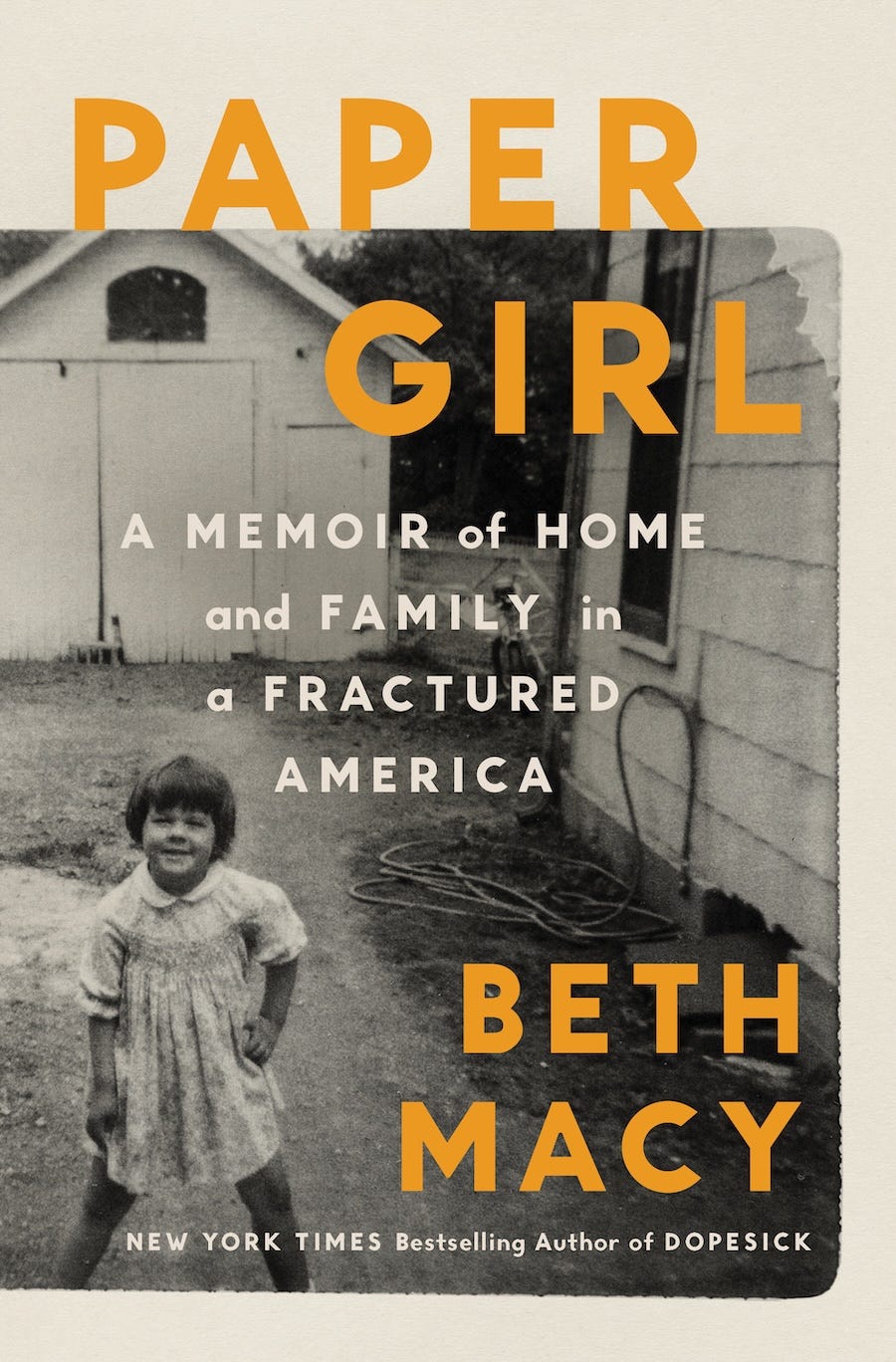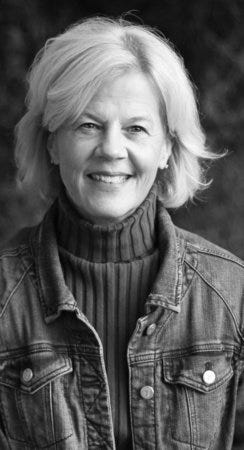BOOK CLUB: Can we heal a divided America?
In "Paper Girl," author Beth Macy tries to make sense of our national estrangement -- and finds ways to heal broken bonds
Join us this afternoon, Wednesday, November 12, at 12:30 p.m. Eastern, for a special Ink Book Club live conversation with Dopesick author Beth Macy to talk about the need for fresh leadership and her new book, Paper Girl. Watch on desktop at The Ink or on a phone or tablet using the Substack app.
Journalist and author Beth Macy grew up in Urbana, Ohio, just an hour down the road from Middletown, one of the two towns J.D. Vance wrote about in Hillbilly Elegy. Macy’s hometown once prided itself on having been a key stop on the Underground Railroad — a haven for runaway slaves — but as she chronicles in Paper Girl: A Memoir of Home and Family in a Fractured America, these days Confederate flags fly outside many Urbana homes, and QAnon adherents abound. Macy writes that “unprecedented forces” had turned “the community I loved into a poorer, sicker, angrier, and less educated place.”
Macy had left Urbana decades before, thanks to a Pell Grant that covered 100 percent of her tuition as an undergraduate student at Bowling Green University. She grew up dirt poor and couldn’t have managed to attend college otherwise. Macy laments that recent changes to the program have made it harder for students to qualify, and that, due to the enormous increases in the cost of higher education, the money provided — the current maximum being $7,395 — even students who qualify have to find ways of supplementing their grant money, or opt out of going to college altogether.
Macy’s hard-hitting yet compassionate reporting style earned her a Nieman Fellowship for her coverage of how rural America got sold a bill of goods in the push for globalization. This led her to her 2018 book, Dopesick, and later the Hulu miniseries adaptation she co-wrote and executive-produced. In Paper Girl, she builds on that groundbreaking work to examine why her hometown — and so many others like it — are experiencing record levels of poverty, addiction, homelessness, and despair. The statistics she cites are as sobering as her often uncomfortable interviews with Urbana teachers, attendance officers, election officials, and family, friends, and former classmates, many of them riven apart by gaping political divides. Estrangements within her own family prompt soul-searching; she writes that “these were my people. I didn’t want to write them off, and I didn’t want them to write me off.”
Macy also dug deeper into the roots of Urbana’s fractured state, and began to see her town as a microcosm of the divisiveness that has taken hold pretty much everywhere in the U.S. 75 percent of Urbana voters supported Donald Trump in 2020, and while he gets the lion’s share of the blame in Paper Girl for much of the discord she encounters, she also begins to feel she’s no longer sure “to what degree our national estrangement was Trump’s fault and to what degree the so-called elite — including newsmakers, the media, and a thoroughly deregulated business class — had brought it on ourselves.” In her view, the path was paved by many who came before, among them all the politicians, whether Republican or Democrat, who had a role in undermining confidence in government and institutions of higher learning. In a recent New York Times/Siena poll, 64 percent of Americans reported that they felt we are too divided to be capable of solving our most pressing problems, a concern that weighs as heavily as economic uncertainty.
In Paper Girl, Macy has taken a cue from James Baldwin, who said: “The world changes according to the way people see it, and if you alter, even by a millimeter, the way a person looks or people look at reality, then you can change it.”
In the course of researching and writing the book, did she change minds or repair broken bonds? Unclear. Nearly a year into his second term, do Trump voters who have seen him in action still think he has their backs?
In the comments, let’s cue up some questions for Beth Macy, today’s Ink Book Club guest. Below, for our Book Club members, you’ll find a few questions to get the ball rolling.
The Ink Book Club is open to all paid subscribers to The Ink. If you haven’t yet become part of our community, join today. And if you’re already a member, consider giving a gift or group subscription.






